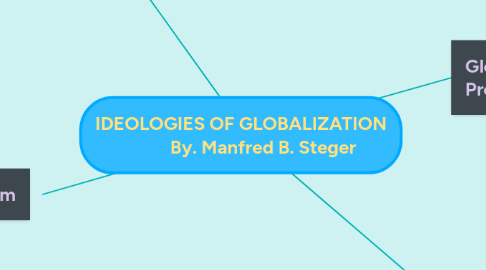IDEOLOGIES OF GLOBALIZATION By. Manfred B. Steger
by Rica Rosie


1. Introduction
1.1. This article seeks to establish that globalism not only represents a set of political ideas and beliefs coherent enough to warrant the status of a new ideology, but also constitutes the dominated ideology of our time against which all of its challengers much define themselves.
2. Globalization: Process, Condition and Ideology
2.1. Process: It is a set of processes of economic, social, cultural, technological or institution that contribute to societies and individuals' relationships worldwide.
2.2. Condition: This doing everything to improve the working conditions faced by workers by offering mechanisms and such more.
2.3. Ideology It endows a concept of globalism with a particular concept or value. A form of social or political philosophy of ideology in which practical elements are ones prominent as theoretical ones.
3. Six Core Claims of Globalism
3.1. Claim One: Globalization is about the liberalization and global integration of markets.
3.1.1. Globalization and markets constitute to its twin core concepts.
3.2. Claim Two: Globalization is inevitable and irreversible.
3.2.1. Turns on the adjacent concept of Historical Inevitability.
3.3. Claim Six: Globalization requires a global war on terror.
3.3.1. Decontestation chain attests to globalism political responsiveness and conceptual flexibility.
3.4. Claim Two: Nobody is in charge of globalization.
3.4.1. Hinges on the classical liberal concept of the self-regulating market.
3.5. Claim Four: Globalization benefits everyone in a long run.
3.5.1. Draws on the powerful socialist vision of establishing an economic paradise.
3.6. Claim Five: Globalization furthers the spread of democracy.
3.6.1. Links globalization and markets to adjacent concept of democracy.
